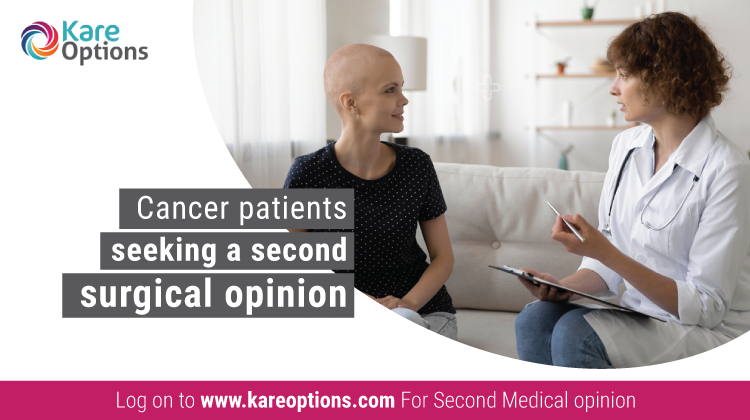The needs of cancer patients are complex. If you have been diagnosed with cancer and are looking for a second opinion medical consultation, then you are on the right track. Research evidence has repeatedly affirmed that a second opinion is the first essential step to your treatment success. Here’s what researchers found when they surveyed patient samples. The following paragraphs summarize research studies that have been carried out during the past few decades.
Why Patients Seek the Second Medical Opinion is Quite Intriguing
Patients seeking a second opinion consultation have very different motivations. A study of 212 patients by Mellink’s team decades ago explored what cancer patients expect from second opinions. Researchers also wanted to know what motivated patients into seeking a second medical opinion. They collected data at an outpatient setting specializing in oncology from patients who were mostly in their fifties. Most of them were women (about 82%). 6% of the women had breast cancer and about half of the participants did not receive the required level of education. Interestingly, the need for seeking a second medical opinion among 62% of the patients was certainty and reassurance.
Further, about 38% had unfulfilled needs or some kind of negative experience. Some motivated patients seeking a second opinion medical consultation were not satisfied with the specialist they consulted earlier. Some others wanted to take an active part in the decision-making process. Still, others hoped for a different opinion, which motivated them to seek a second specialist. Furthermore, the patients who were highly motivated also had higher levels of anxiety.
Recent Research Delves Deeper into What Leads to Seeking Second Medical Opinion
The story does not end at just the motivations of patients seeking a second opinion medical consultation. In a recent systematic review by Hillen and colleagues, there’s a lot more information on why patients seek a second opinion after a cancer diagnosis. Patients are driven by internal and external factors when seeking a second medical opinion or second surgical opinion. Researchers also found ways to prevent patients from getting a second opinion when they did not need it.
Scientists found that the percentage of patients seeking a second medical opinion was between 1% to 88%. Patients who received a higher degree of education were more likely to seek a second opinion. Patients were highly motivated to seek a second medical opinion for cancer in specific cases. These were to do with a lack of trust or when they found communication inadequate or substandard. In some cases, they wanted to be certain about the opinion. Otherwise, they required personalized information. Finally, the extent to which a first and second opinion differed ranged from 2% to 51%. Finally, seeking a second medical opinion is likely to have psychological, medical, and practical consequences. This information is important for patients as well as oncologists.
Here’s What to Expect on Cancer Outcomes after a Second Opinion
It is also interesting to understand what may be expected from cancer outcomes after seeking a medical second opinion. Ruetters and his team identified that patients wish to take part in their decision-making process. This translates to a growing demand for second opinions in the faculty of oncology. However, this process has several risks and benefits.
Essentially, about 6.5% to 36% of patients pursue a second opinion diagnosis. When patients turn to another doctor for a second opinion, about 12% to 69% of the cases receive a change in the diagnosis. Further, about 43% to 83% of patients get their diagnosis verified. These patients are more certain about their disease and treatment plan. They experience a high degree of patient satisfaction and reassurance after the second opinion on cancer diagnosis.
Patients demand a second opinion medical consultation, and this influences their treatment decisions. A “structured, high-quality, and transparent” second opinion is essential after a cancer diagnosis. In essence, seeking a second opinion doctor can improve patient-physician communication, supports decision-making, and improves information flow.
Disclaimer:
“KareOptions does not have any intention to provide specific medical advice, but rather to provide its users and/ or the general public with information to better understand their health. All content (including text, graphics, images, information, etc.) provided herein is for general informational purposes only and is not a substitute for professional medical advice, care, diagnosis, or treatment. KareOptions makes no representation and assumes no responsibility/ liability for the accuracy of the information, advice, diagnosis, treatment provided herein or on its website. NEVER DISREGARD PROFESSIONAL MEDICAL ADVICE OR DELAY IN SEEKING TREATMENT BECAUSE OF SOMETHING YOU HAVE READ IT HERE OR ACCESSED THROUGH THE KAREOPTIONS WEBSITE.”


